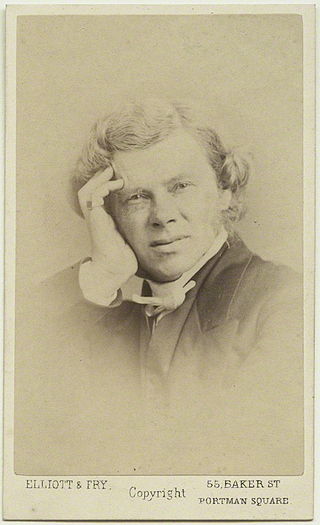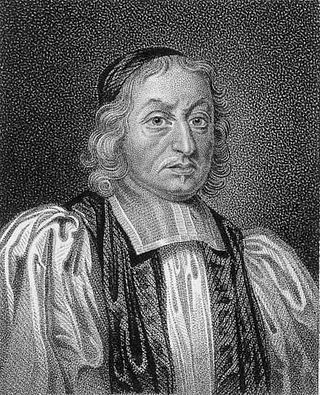Related Research Articles

John Saul Howson, British divine, was born at Giggleswick-on-Craven, Yorkshire.

Laurence Echard was an English historian and clergyman. He wrote a History of England that was a standard work in its time.

Humphrey Prideaux was a Cornish churchman and orientalist, Dean of Norwich from 1702. His sympathies inclined to Low Churchism in religion and to Whiggism in politics.

John Pearson was an English theologian and scholar.

Edmund Law was a churchman in the Church of England. He served as Master of Peterhouse, Cambridge, as Knightbridge Professor of Philosophy in the University of Cambridge from 1764 to 1769, and as bishop of Carlisle from 1768 to 1787.

Matthew Wren was an influential English clergyman, bishop and scholar.
William Rowe Lyall was an English churchman, Dean of Canterbury from 1845 to 1857.
Barnabas Oley (1602–1686) was an English churchman and academic. A royalist figure of the First English Civil War, he was also the first editor of George Herbert and Thomas Jackson, and a personal friend of Nicholas Ferrar. In old age he was archdeacon of Ely for a year.

Robert Booth (1662–1730), an aristocratic 18th-century Anglican priest, served as Archdeacon of Durham from 1691 and also as Dean of Bristol from 1708.
George Hardwicke Spooner was an Anglican priest and author in the first half of the Twentieth century.

John Chappel Woodhouse was an English Anglican priest who was Archdeacon of Salop from 17 October 1798 until 24 December 1821; and Dean of Lichfield from 1807 until his death.
William Powell was an eighteenth century British Anglican priest.
George Buckley Bower was an English churchman and academic. He was Archdeacon of Richmond from 1797 until his death.
John Howorth, D.D. was a 17th-century priest and academic.
Robert Hall, D.D. was an Anglican priest in England during the 17th century.
The Venerable Edmund Entwisle, D.D. was an Anglican clergyman.
John Allen was an Anglican priest.
William Finmore was a seventeenth-century Anglican priest.
John Carter was an Anglican priest.
Robert Rogers was an Anglican priest and Antiquary in the second half of the 16th-century.
References
- ↑ "Catalogue of the Harleian Manuscripts in the British Museum" p522: London; King George; 1808
- ↑ Pearson, John (1844). The Minor Theological Works: Now First Collected, with a Memoir of the Author, Notes, and Index (in Latin). University Press. p. xcvii note z.
- ↑ "John Thayne (THN670J)". A Cambridge Alumni Database. University of Cambridge.
- ↑ Alumni Oxonienses 1500–1714, Tabbe-Thomyow
- ↑ "History of the city of Chester, from its foundation to the present time : with an account of its antiquities, curiosities, local customs, and peculiar immunities ; and a concise political history" Hemingway, J Chester' J. Fletcher; 1831 p326
- ↑ Remains, Historical and Literary, Connected with the Palatine Counties of Lancaster and Chester. Chetham Society. 1889. p. 562.
- ↑ Hampton, Stephen (29 May 2008). Anti-Arminians: The Anglican Reformed Tradition from Charles II to George I. OUP Oxford. p. 21. ISBN 978-0-19-155985-3.
- ↑ Biographia Britannica: Or, The Lives of the Most Eminent Persons who Have Flourished in Great Britain and Ireland, from the Earliest Ages, Down to the Present Times. W. Innys. 1760. p. 3311.